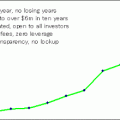HSBC is recruiting hundreds of bankers to serve rich clients in the UK as it looks to head off growing competition from British rivals and take a larger slice of the wealth management market.
Europe’s biggest bank is hoping to fortify the UK arm of its wealth and private banking operations by bulking up its team of relationship managers, who offer bespoke services and advice to rich clients in exchange for lucrative fees.
The recruitment drive will result in hundreds of relationship managers added to its 400-strong team by next year, according to a source familiar with the lender’s hiring plans. HSBC has its headquarters in London but the recruits will be based across the UK, with vacancies posted recently in locations ranging from Peterborough to Truro and Telford.
The new UK bankers will be tasked with doubling assets under management at HSBC’s UK wealth business about £100bn over the next five years. An asset pool of that size would make HSBC one of the top five wealth managers in Britain.
The company is diversifying into more stable streams of income that are less sensitive to the interest rate cycle.
The hiring spree is part of the bank’s efforts to replicate the success of its Asian wealth division, which hired 1,000 new staff in 2021 alone, after a $3.5bn (£2.7bn) investment in the region.
The expansion came despite an overhaul under HSBC’s former chief executive Noel Quinn, who announced in 2020 that the bank was looking to cut up to 35,000 jobs by 2022. HSBC employs about 220,000 staff globally, with more than 40,000 in the UK.
It is understood that HSBC’s efforts to lure more wealthy customers will also involve a refresh of its premier-tier banking services, launching mobile banking for those wealthy customers and offering a wider range of competitive benefits. Details of the refresh are due to be unveiled before Christmas.
But the bank will face renewed competition from other high street lenders, including Lloyds Banking Group and Barclays, which are also pushing more forcefully into wealth management. The trio of banks are hoping to gain a greater slice of the so-called “mass affluent” market, which Lloyds defines as those who have £75,000 to £250,000 in deposits.
Barclays’ premier service, which includes a “dedicated team of premier financial guides”, targets people earning at least £75,000, or those who have at least £100,000 in savings.
HSBC, which used to market itself as “the world’s local bank”, is hoping to bolster its own wealth division by targeting international customers, who see advantages to banking with a lender with a much larger global footprint.
The company sees opportunities with customers who already bank with HSBC in another country, and those who are considered non-domiciled under UK rules, which allow people to live in the country without paying tax on their overseas income.
The strategic plan, which is being overseen by HSBC UK’s head of wealth and personal banking, Jose Carvalho, will continue despite a recent management shake-up.
Carvalho’s boss, HSBC Group’s head of wealth and personal banking, Nuno Matos, resigned from his role days before the former finance chief Georges Elhedery took the reins as group chief executive on 2 September.
Elhedery signalled that he was unlikely to make any major changes even after his predecessor, Noel Quinn, stepped down. Quinn said it had been an “intense” five years in the role and he wanted a better work-life balance.
Elhedery told journalists in July: “We have delivered financial performance and we have built a strong platform for growth … I strongly believe the strategy of the group is working, and therefore I am committed to building on this strategy.” He said the bank was “broadly where we wanted to be”.
HSBC’s global wealth and private banking division was managing $1.19tn of customer assets as of December last year, up 17% from 2022. Its made revenues of about $7.5bn, accounting for 11% of the group’s $66bn revenues for 2023.
By July this year, the bank said it had attracted another $19bn-worth of assets, while the division’s revenues grew 12% to $4.3bn in the first half of 2024.
